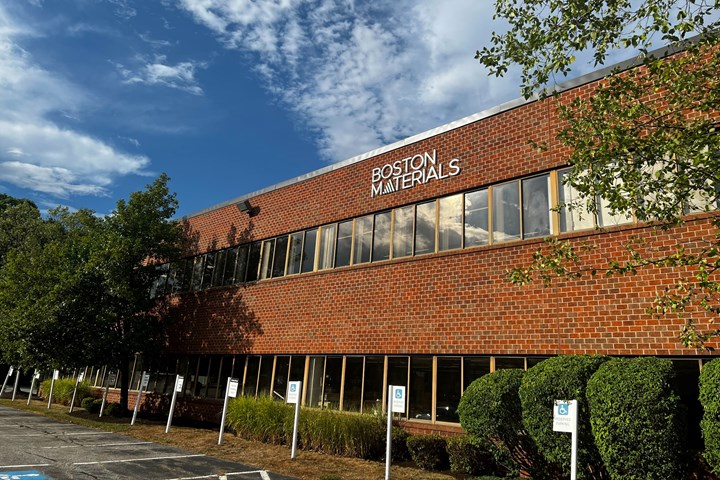Boston Materials secures $12 million from new investors, expands Z-axis composites growth
The investment will enable the high-performance materials company to further expand product offerings for customers across consumer electronics, electric vehicles and fuel cell applications.
High-performance materials company Boston Materials (Billerica, Mass., U.S.) has raised a $12 million Series A2 round led by Good Growth Capital (GGC). The round also includes new strategic investors GS Group and PTT Global Chemical, which will provide important supply chain relationships and unlock customers in new geographical regions.
The investment follows the recent news of Boston Materials’ partnership with Textron Systems (Wilmington, Mass., U.S.) on supplying lightweight materials for aerospace applications. The new funds will support Boston Materials’ continued growth, increasing manufacturing and engineering operations at the new factory in Billerica, Mass., and expanding product adoption with existing and new customers.
“We have successfully piloted new game-changing products with leaders in consumer electronics, electric vehicles and fuel cells,” Anvesh Gurijala, CEO of Boston Materials, says. “By incorporating a Boston Materials product, our customers have experienced extraordinary results. Noteworthy examples include a fifteen-fold increase in product lifespan and unlocking a five-fold reduction in Scope 3 emissions. This new investment will enable us to expand upon this work to scale and support rapid adoption.”
Currently, Z-axis carbon fiber has an addressable market of more than $450 billion.
Known for its patented Z-axis carbon fiber technology (see “Z-direction composite properties on an affordable, industrial scale”), a lightweight material produced from 100% reclaimed carbon fiber with energy dissipation properties, Boston Materials says it enables manufacturers of industrial and consumer products to create highly differentiated, energy-efficient products that have a low carbon footprint. The manufacturing scale of Z-axis carbon fiber enables Boston Materials to formulate products for a wide range of applications that are cost-effective to deploy at high volumes.
A global emphasis on decarbonization in transportation and proliferation of industrial and consumer electronic devices has reinforced demand for Boston Materials’ technology, according to the company. Currently, Z-axis carbon fiber has an addressable market of more than $450 billion with applications including weight reduction of automobiles, improving the performance and reliability of electronics through efficient thermal management, reducing the weight and cost of hydrogen fuel cells for clean transportation and more.
Strategic investors GS Group and PTT Global Chemical will provide important supply chain relationships and access to customers in new regions. Both organizations see high value in Boston Materials’ Z-axis carbon fiber technology in enabling decarbonization and improved sustainability across the energy, electronics and transportation sectors.
GS Group and PTT Global Chemical acknowledge the notable value Boston Materials is expected to bring in decarbonization, sustainability and high-performance composite materials.
Previous Boston Materials investors also participated in this round, including ACCELR8, Valo Ventures and ACVC Partners. New investors joining this round include Gatemore Venture Partners. Prior to this round, Boston Materials had raised $14.8 million, bringing the company’s total funding to date to $26.8 million. Since the first round of fundraising, the company has reportedly tripled its employee headcount, with plans to create a significant number of new jobs in the near future to support ongoing growth.
Related Content
-
The lessons behind OceanGate
Carbon fiber composites faced much criticism in the wake of the OceanGate submersible accident. CW’s publisher Jeff Sloan explains that it’s not that simple.
-
Novel dry tape for liquid molded composites
MTorres seeks to enable next-gen aircraft and open new markets for composites with low-cost, high-permeability tapes and versatile, high-speed production lines.
-
PEEK vs. PEKK vs. PAEK and continuous compression molding
Suppliers of thermoplastics and carbon fiber chime in regarding PEEK vs. PEKK, and now PAEK, as well as in-situ consolidation — the supply chain for thermoplastic tape composites continues to evolve.

















